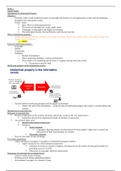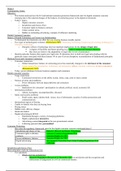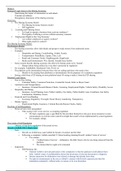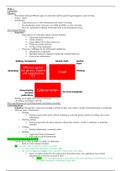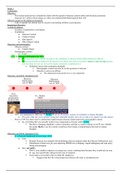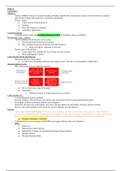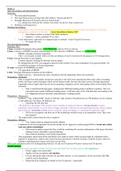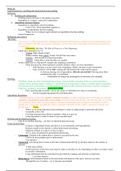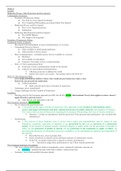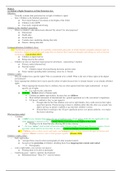London School of Economics (LSE) • LLB
Latest uploads for LLB at London School of Economics (LSE). Looking for LLB notes at London School of Economics (LSE)? We have lots of notes, study guides and revision notes available for LLB at London School of Economics (LSE).
-
110
- 0
-
6
Modules LLB at London School of Economics (LSE)
Notes available for the following courses of LLB at London School of Economics (LSE)
Popular books London School of Economics (LSE) • LLB
Latest content London School of Economics (LSE) • LLB
These notes begin by exploring the nature of information and its many forms (text, audiovisual media, hyperlinks, news aggregation, cultural and technical products) and how the production, use and ownership of these is complicated by the online environment. Is there a fundamental contradiction in the enforcement of intellectual property rights and the 'copy, download, paste and upload' ethos many users of the internet rely on? What should we do about Peer-to-Peer systems and streaming of content...
The digital environment gives consumers a wider choice of products and services, and lower prices, but it also creates a lot of concerns for them. Platforms are only becoming more powerful, which materially changes the balance of contracting power and influence in online transactions, to the detriment of the consumer. Furthermore, consumers are confronted with different forms of integrated advertising when they go online and nudged into certain decisions by certain design choices (so-called dark...
Some of the fastest-growing companies are now so-called “gig economy” employers. The world’s largest holiday letting company owns no hotels or properties while the world’s largest taxi firm owns few vehicles. Some believe the massive success of these companies is achieved at the cost of lack of protection for "employees" (so-called) and for customers. The call for companies such as AirBnB and Uber to be more closely regulated is now being answered by governments and other regulators. Wh...
This week's lecture looks at a variety of issues surrounding crime and law enforcement in the Information Society including online harassment and bullying, terrorist activity promulgated by computer and internet, phishing and computer fraud and identity theft. We will ask how law enforcement bodies can police these types of activity. These notes examine and evaluate how the law responds to harmful content including harassment, bullying and extremist content as well as the risk of fraud and iden...
These notes consider how pornographic and obscene content, as well as criminal speech, is regulated in the informational society. It analyses the distinction between indecent content and obscene content and examines how the law applies to child abuse images as well as pseudo-images. How should we regulate the problem of online obscenity and indecency? Who should be responsible? Is this a legal issue or a code issue?
The internet is the greatest tool and forum for human creativity ever developed. It allows us to be creative in a way unlike any other tool and it allows for the sharing of the fruits of our creativity and fore collaborative creativity in a way we never imagined possible. Terms such as user-generates content, remix, fanfiction and many others have entered our conscience. However, every creative act may be seen by copyright holders to be a destructive act or an act of parasitical creation. How do...
The extent to which state surveillance of electronic communications is permissible has been the subject of much debate since Edward Snowden's revelations in the Summer of 2013. State surveillance raises critical questions about how the balance should be struck between the individual's right to respect for his private and family life, his home and his correspondence and the State's duty to investigate and thwart serious criminal threats. Here, we will examine the legal framework applicable t...
Broadly, these notes will examine such challenges and identify how the law has sought to regulate automated decision-making. We examine the privacy and public policy implications of employing algorithmic processes to profile individuals and to make decisions of legal impact.
These notes introduce two key philosophies underpinning freedom of expression, including freedom of expression online. The US philosophy, 'the marketplace of ideas', envisages minimal governmental intervention in order to preserve freedom of thought, autonomy and democratic speech. The European philosophy allows for governmental content regulation provided certain safeguards are present. Such differing philosophies regarding the relative value of free speech when balanced with other rights and...
The main theme of these notes will be the increasing ‘datafication’ of children online and special attention is given to children’s rights to privacy and data protection. We will then move on to the specific protection for children’s personal data as provided by data protection law. Containing lecture notes, academic discussion and class notes, these notes reflect on how to interpret the GDPR in a children’s rights-inspired manner and what this means in practice.



